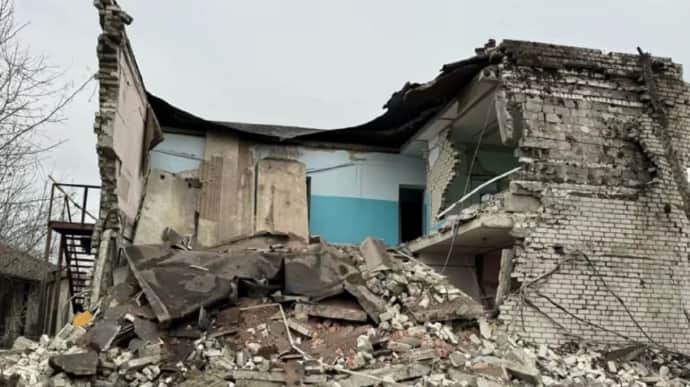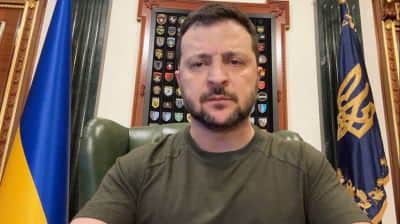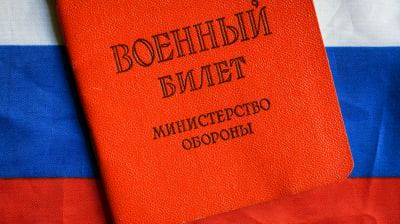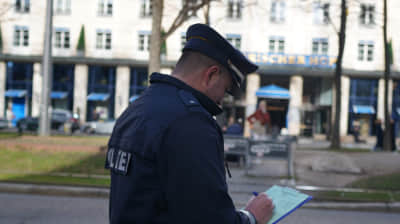ISW analyses Russian attack on Ukraine on 7 February

Experts at the Institute for the Study of War (ISW) have suggested that with its combined strikes on Ukraine on 7 January, Russia was trying to distract the Ukrainian air defence network with one particular type of missiles so that the more powerful ones could reach their intended targets.
Source: the ISW
Quote: "The 7 February strike package is emblematic of the constant air domain offence-defence innovation-adaptation race in which Russia and Ukraine are engaged."
Details: The ISW noted that Ukrainian air defence network was able to shoot down most of the Kh-101/555/55 cruise missiles and Shahed attack drones, which may indicate that Russian forces fired these missiles and drone to distract Ukrainian air defence.
At the same time, experts pointed out that Ukrainian forces did not shoot down any Kh-22 cruise missiles, Iskander-M ballistic missiles or S-300 anti-aircraft missiles.
The ISW suggested that Russian forces might have specifically designed this strike package to distract Ukrainian air defences with a combination of Kh-type missiles and Shahed drones, allowing other missiles to reach their intended targets.
Quote: "The unconfirmed reports of 3M22 Zircon strikes are also noteworthy as Zircons are typically fired from naval vessels at other vessels or coastal targets, so Russian forces may have had to adapt the Zircon launchers to strike targets so far inland."
Details: In addition, experts noted, Russian forces appear to have incorporated North Korean missiles into their strike systems, which may have been more difficult for Ukrainian forces to detect and shoot down.
Quote: "ISW has previously assessed that Russia is experimenting with the strike packages it can launch at Ukraine to achieve the maximum desired effect, and that Ukraine in return continues efforts to adapt and respond to new Russian strike packages."
More details: It is also noted that the attack on Kyiv this time occurred during the visit of EU chief diplomat Josep Borrell to Kyiv.
In this regard, the ISW concluded that Russia probably carried out this series of strikes purposefully and targeted Kyiv to achieve an information effect in the EU and the collective West, in addition to other goals it intended to achieve in Ukraine.
To quote the ISW’s Key Takeaways on 7 February:
- Russian forces conducted the second largest combined drone and missile strike of 2024 on the morning of 7 February 7. The 7 February strike package is emblematic of the constant air domain offence-defence innovation-adaptation race in which Russia and Ukraine are engaged.
- Russia targeted Kyiv City during the 7 February strike for the third time thus far in 2024, notably coinciding with EU High Commissioner Josep Borrell’s visit to Kyiv.
- Dmitry Medvedev, Deputy Chairperson of the Russian Security Council, continued his nuclear saber-rattling rhetoric likely aimed in part at deterring Western aid to Ukraine.
- The Russian Federation Council approved a bill on 7 February that allows the Russian government to confiscate property from individuals convicted of spreading "fake" information about the Russian military, likely as part of ongoing censorship efforts to limit criticisms of Russia’s war effort ahead of the March 2024 Russian presidential election.
- Yandex NV — the Dutch holding company of Russian internet technology company Yandex — announced that it will sell all of its Russian assets for 475 billion roubles (about US$5.2 billion) to a purchasing consortium consisting of five Russian companies.
- Russian forces made confirmed gains west of Horlivka and in the Donetsk-Zaporizhzhia Oblast border area amid continued positional engagements along the entire frontline.
- The Ukrainian Defence Intelligence stated on 7 February that Russia is mobilising citizens from Syria who come to Russia under the guise of security guard jobs at oil refineries.
- Russian occupation authorities continue to militarise Ukrainian children and youth in occupied Ukraine.
Support UP or become our patron!







